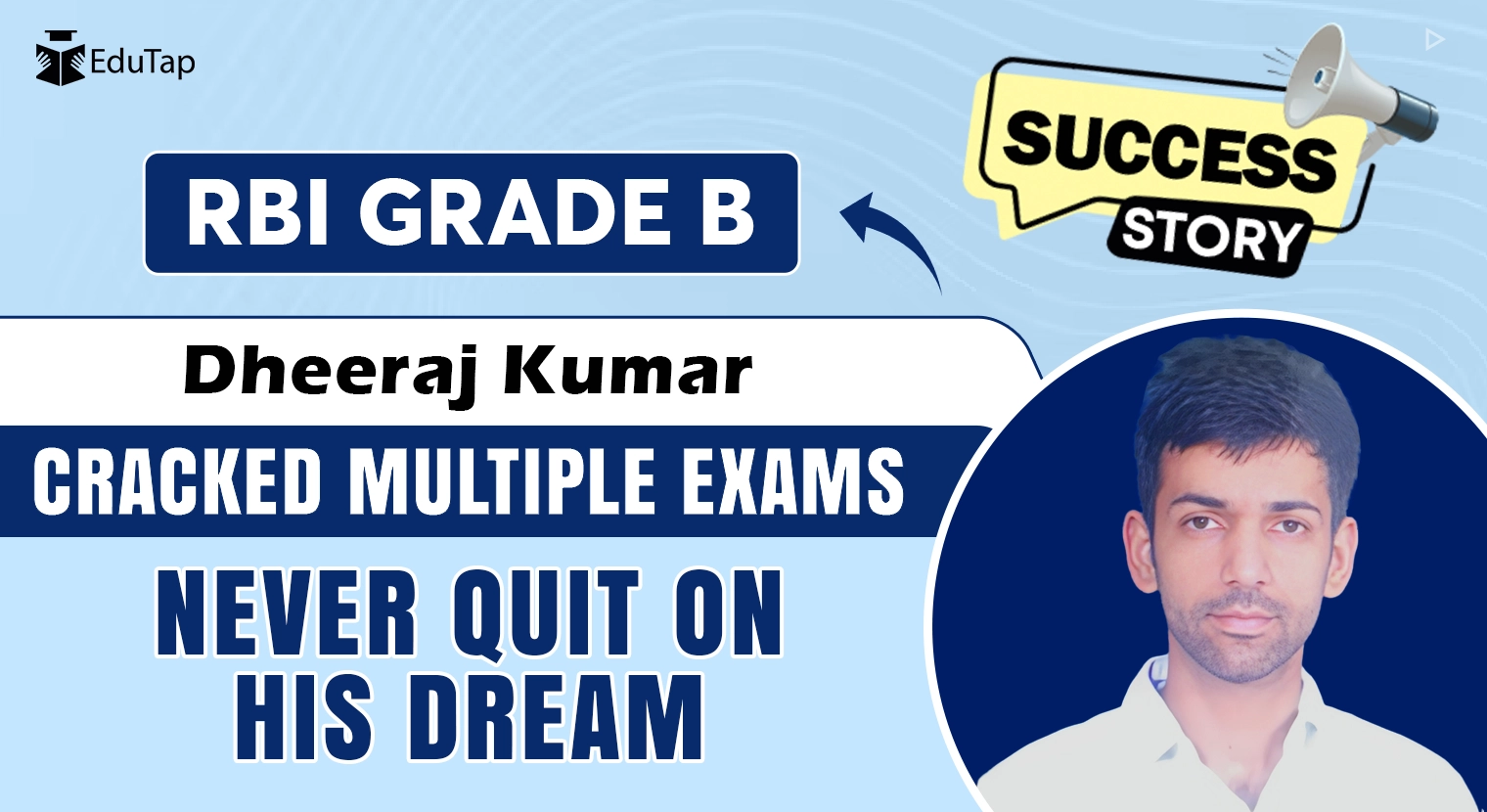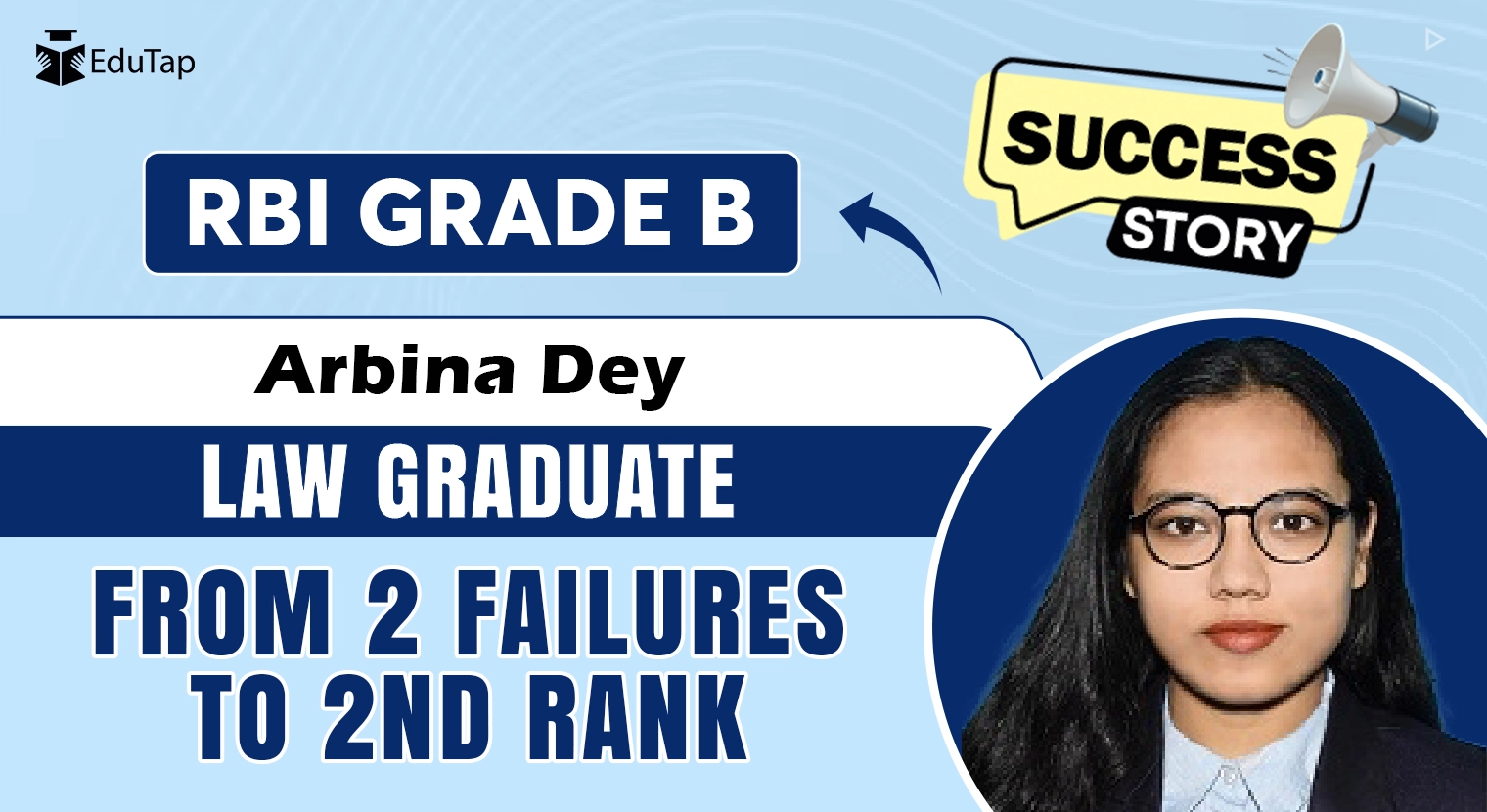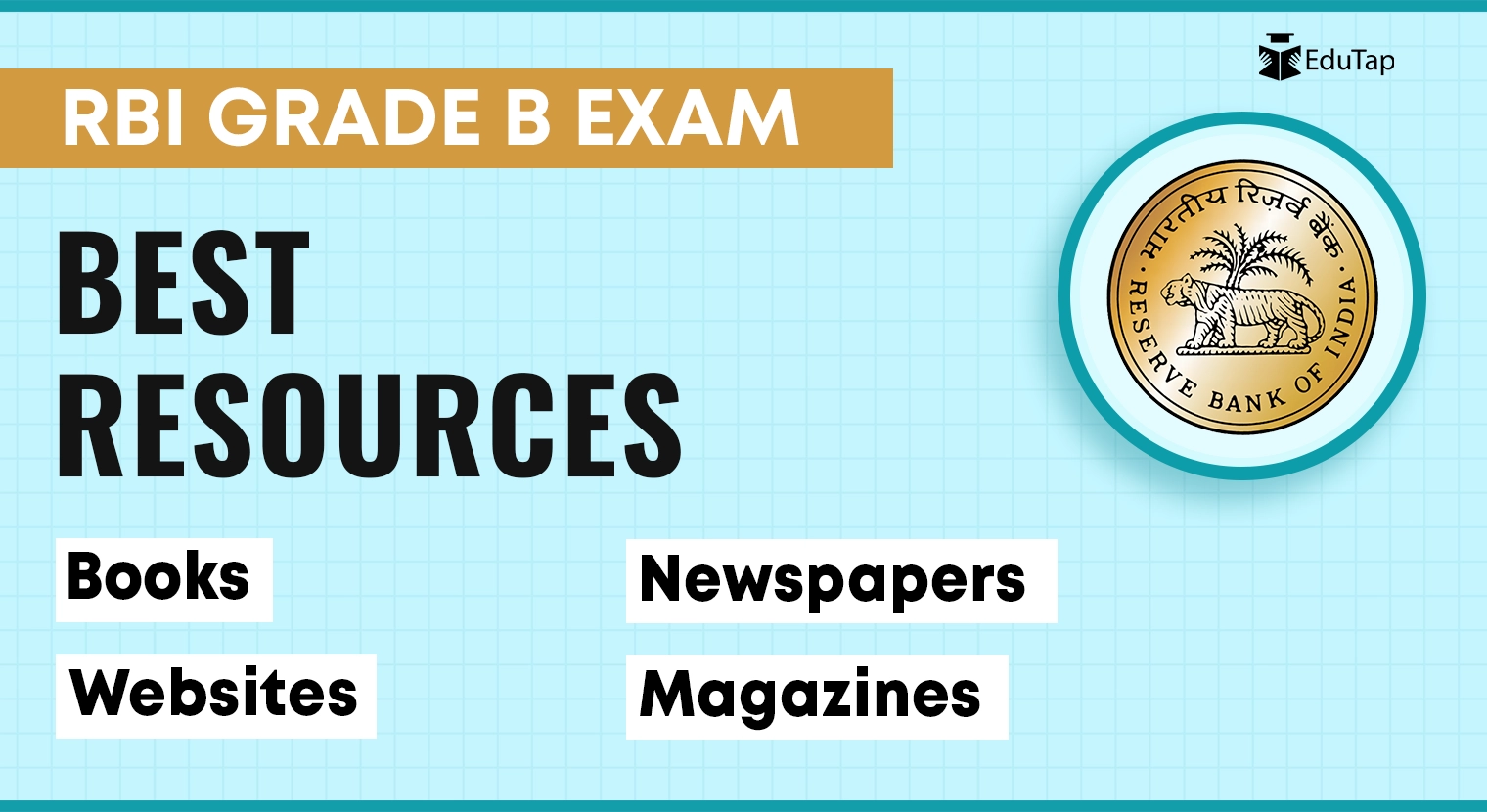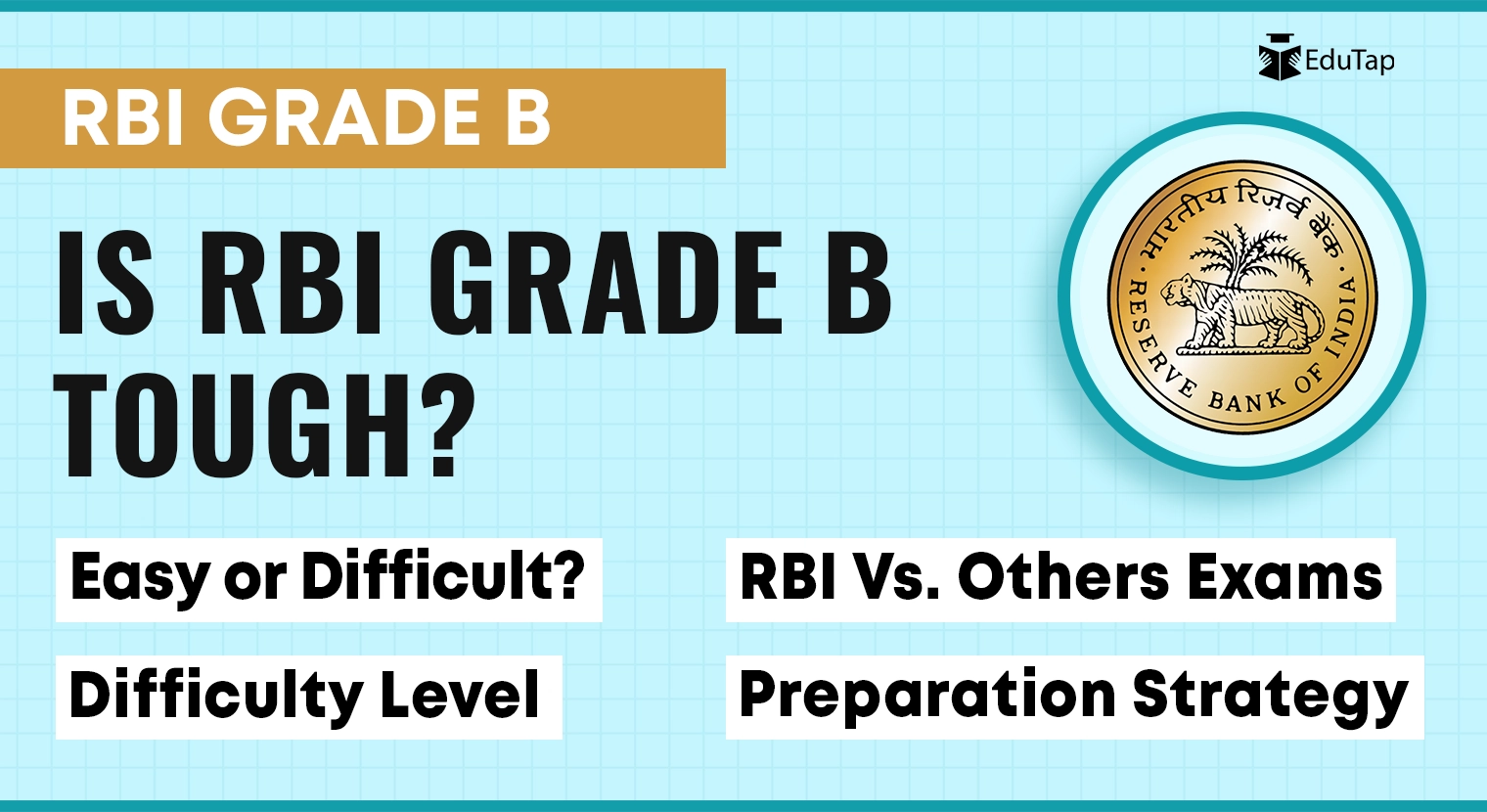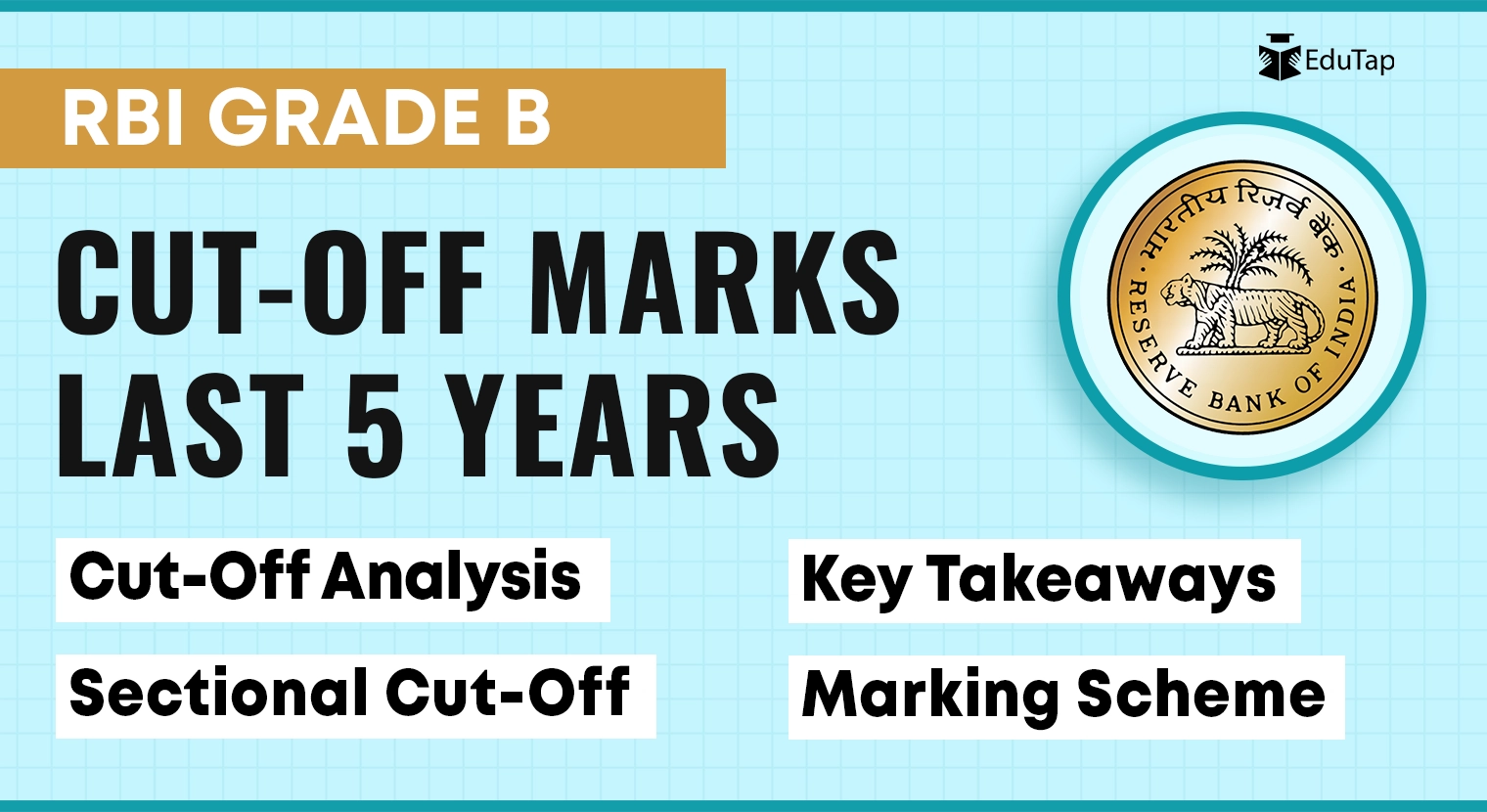This is the story of Mr. Dheeraj Kumar, who overcame multiple failures on his journey to becoming an RBI Grade B officer. Despite initial setbacks and a demanding work schedule, Dheeraj never lost sight of his goal.
During his journey, he cracked multiple exams, including the RBI assistant exam, but his ultimate goal was the RBI Grade B exam. He strategically balanced his preparation with work and social life, proving that dedication and perseverance are key to success.
In this article, Dheeraj shares his inspiring story and practical tips for aspiring RBI Grade B candidates.
Background
- Graduated with a Mechanical Engineering degree
- Decided to pursue government jobs
- Cracked multiple exams during my RBI Grade B journey
- Ultimately cracked the RBI Grade B exam in my 3rd attempt

Brief Introduction
I graduated with a B.Tech degree in Mechanical Engineering. After not securing a placement through my college, I decided to pursue government jobs. The banking sector seemed like a perfect fit. I began preparing for the IBPS PO exam.
As I learned more about banking exams, I discovered the RBI Grade B exam, which is considered the top position in this field. Right then, I decided to wait (until I had a stable job) before attempting the RBI Grade B exam.
My initial target was the IBPS exam to secure employment and then prepare for the RBI Grade B exam.
My RBI Grade B Journey
My first exam was the IBPS PO. I successfully cleared the prelims, mains, and interview and ultimately got selected for the IBPS PO position. During this time, I also took the IBPS clerk exam and cleared that as well.
However, my initial success was followed by a series of setbacks in 2021. I appeared for interviews for NHB, PFRDA, and NPS Grade A (generalist vacancy) but wasn’t selected for any of them.
In 2022, I continued taking exams with renewed determination. This time, my efforts paid off in several instances. I re-attempted the NHB Assistant Manager exam and secured the position. Additionally, I successfully cleared interviews for SEBI Grade A, RBI Grade B, RBI Assistant, and SIDBI Grade A exams.
Along with the RBI Grade B exam, I successfully cleared interviews for SEBI Grade A, RBI Assistant, and SIDBI Grade A exams.
My Motivation for RBI Grade B
I never sacrificed other things for my RBI Grade B preparation and successfully balanced them. I used to play cricket, meet with colleagues, and even go to parties. Studying never felt like torture; I never felt like I was giving up other things for it. I enjoyed my life while dedicating time to my studies.

Whenever I cleared a pre-exam or the mains exam, it gave me a huge confidence boost. It reinforced my belief that I could prepare for exams and perform well while still working. Even though I wasn’t selected in the final results of some exams, it never discouraged me from continuing my preparation. These experiences served as a motivational factor, proving that I could clear exams while maintaining a full-time job.
I never sacrificed other things for my RBI Grade B preparation. I used to play cricket, meet with colleagues, and even go to parties.
My Schedule
My work schedule was very tight during the early phase of my career. I used to reach home by 8:00 pm. Despite this, I set a goal to study for at least 2 hours each day, even if it meant staying up until midnight. Of course, there were times when I could only manage 1 hour, but I was consistent. I aimed to avoid the mentality of pushing off studying until tomorrow or the day after. Every day, I made an effort to dedicate time to my studies.
I Utilized Weekends for RBI Grade B Preparation
If I had no other plans, I used the weekends efficiently to tackle topics I couldn’t cover during weekdays due to time constraints. These weekend sessions often lasted 6-7 hours, with the option to extend them further if my schedule allowed.
I Strategically Limited My Social Outings
While prioritizing studying, I still occasionally made time to socialize with friends, depending on my workload. The same was true for cricket. Due to a limited number of players (mostly friends from the bank), our matches were either early mornings during weekdays or weekends. On weekends, I’d typically be free by 10 or 11 am. After taking a short rest, I started my study.
I utilized weekends for RBI Grade B preparation and strategically limited my social outings.
My Family Support
My Family’s unwavering support was crucial to my RBI Grade B journey. When I secured the PO position, their initial reaction was relief and encouragement to unwind and enjoy life with friends.
They suggested taking a well-deserved break to prioritize my health and well-being. However, with only a few exams under my belt, I expressed my desire to pursue the RBI Grade B exam. The situation was also in that favor as my job posting was far from home, eliminating the possibility of weekend visits.
Studying for the exam was the most effective way to utilize my time away from family. Thankfully, they understood my perspective and offered their unwavering support. Their constant encouragement was a source of strength throughout my RBI Grade B preparation.
My Family’s unwavering support played a crucial role in my RBI Grade B journey.
RBI Grade B Vs. Other Banking Exams
Having taken numerous banking exams, I observed that the RBI Grade B Prelims exam stood out for its higher difficulty level. The QRE section, in particular, had become significantly more challenging over the years.
I participated in three RBI Grade B exams from 2019 onwards. From my experience, the difficulty level of the exam has increased over the years. In my first two RBI Grade B attempts, I scored well in the Prelims. However, the 2023 exam felt noticeably more challenging than the previous year. Based on these three years, I can say that the difficulty is indeed on an upward trend.
While the difficulty might be rising, the cut-off scores are decreasing. I noticed this pattern from my RBI Grade B attempts. In my first attempt, the cut-off was around 66, dropping to 63. The 2022 exam saw a further drop to just 54. This suggests a potential correlation between increasing difficulty and decreasing cut-offs.
From my experience, the difficulty level of the RBI Grade B exam has increased over the years.

My RBI Grade B Phase 1 Preparation Strategy
In my experience, mastering the basics of Quant, Reasoning, and English was crucial for success in any exam. This holds true regardless of the difficulty level. The underlying concepts remain the same across all exams, although they might be presented in more complex or calculation-heavy ways.
I prioritized building a strong foundation in the basic concepts. This includes topics like compound interest, simple interest, profit and loss, simplification, etc. Whether you’re starting from scratch or have some prior knowledge, consistently revisiting these fundamentals is key.
Additionally, remembering formulas and tricks becomes essential. By regularly practicing, you can retain these techniques in your memory. Therefore, consistent practice and a clear understanding of concepts are paramount. I emphasize the importance of taking mock tests regularly and gradually increasing the frequency as your foundation solidifies.
After gaining a solid grasp of the basics, all you need to do is practice. I didn’t feel the need to go beyond the concepts I learned during my PO preparation. However, I did attempt multiple mock tests and practice questions to solidify my understanding.
For success in QRE, prioritize building a strong understanding of core concepts. Then, solidify your grasp through regular practice with mock tests.
My RBI Grade B General Awareness Strategy
My RBI Grade B GA strategy involved selecting a maximum of two high-quality resources and following them digitally. I recommend the same approach to other aspirants: avoid using too many sources. Focus on reading two reliable resources, maybe but two should be sufficient to clear the RBI Grade B Phase 1 exam.
While following only two sources may not guarantee a perfect score of 80, it will provide a solid foundation for clearing RBI Grade B Phase 1. Remember, Phase 1 marks are not added to the final cut-off. The key, whether for Phase 1 or Phase 2, is consistent revision. Without regular revision, your understanding of concepts will fade.
Focusing on two sources and revising them thoroughly is a reliable strategy for success.
My RBI Grade B Preparation Approach
Due to my work schedule, studying during office hours was rare. Therefore, all my studying occurred during my free time after work or on weekends. Personally, I preferred studying from PDFs as I found them more time-efficient.
However, learning styles vary, and if someone finds video marathons beneficial, that’s a perfectly valid approach. Ultimately, the format (PDFs or videos) doesn’t matter as much as personal preference.
I preferred studying from PDFs as I found them more time-efficient.
Introduction of Descriptive Writing in the RBI Grade B Phase 2
In my first RBI Grade B attempt, I prepared for the entire syllabus based solely on objective exams. The exam pattern back then involved only objective questions from ESI (Economic & Social Issues) and FM (Financial Management). However, the pattern changed unexpectedly when the notification arrived, and descriptive questions were introduced.
This left me feeling a bit confused. While I initially thought about taking the exam before the pattern change, I quickly realized it wasn’t helpful to dwell on the past. Instead, I focused on adapting to the new RBI Grade B pattern.
Unfortunately, I wasn’t able to adjust to the descriptive format within the short timeframe and couldn’t clear the Mains exam in my first attempt. Consequently, when I began preparing for my second attempt, I ensured my strategy aligned with the updated pattern. And, of course, I silently hoped that the pattern wouldn’t change again.
Instead of dwelling on the past, I focused on adapting to the new RBI Grade B pattern.
RBI Grade B Phase 1 Vs. Phase 2
Having prepared for the PO exam beforehand, I had the basic knowledge of the QRE sections of the RBI Grade B Phase 1 exam. This initial advantage allowed me to dedicate most of my study time to preparing for the Phase 2 exam. However, as the Phase 1 exam came closer, I gradually shifted my focus towards Phase 1.
For those starting their preparation from scratch, it’s crucial to allocate equal time to both Phase 1 and Phase 2. The increasing difficulty level of RBI Grade B Phase 1 in recent years has become a critical factor. I’ve witnessed many well-prepared aspirants (including my friends) struggle with Phase 1 due to underestimating its importance.
Therefore, thorough self-analysis to identify your strengths and weaknesses is vital for effective preparation.
For those starting their preparation from scratch, it’s crucial to allocate equal time to both Phase 1 and Phase 2.
My RBI Grade B Phase 2 Preparation Strategy
Here is my RBI Grade B Phase 2 preparation strategy:
My RBI Grade B FM Strategy
When I began preparing for the RBI Grade B exam in 2019, I sought advice from a friend who had taken the exam that year. I inquired about the resources he used, particularly the books he found helpful. His recommendations were invaluable since I planned to take my first attempt in 2020.
He suggested specific books for me to purchase, which I did. He also emphasized the importance of taking a course, especially considering my work schedule. He explained that relying solely on self-study through online resources wouldn’t be ideal with limited time.
Based on his experience, he recommended EduTap as an excellent online course option.
My RBI Grade B FM Resources
For my first attempt, I followed his advice and purchased books for Finance and Management to cover the static syllabus and enrolled in EduTap to supplement my learning of the static portion.
The nature of the Finance section shifted towards current affairs. Previously, both Finance and Management focused solely on static content. However, even Finance, which used to be entirely static, has started incorporating current affairs questions in recent exams.
In my observation, the Finance section appears to have a rough balance: if it’s worth 25 marks, there might be around 10 marks allocated to current affairs and 15 to static content. Therefore, a solid understanding of Finance’s current affairs seems crucial.
For FM, I purchased some books and enrolled in EduTap’s course.
My RBI Grade B Descriptive Writing Strategy
My approach focused on mastering the objective portion, but I also practiced applying that knowledge to descriptive questions. For each topic I studied objectively, I’d also formulate an answer in a descriptive format.
For example, if I were studying a topic like “motivation” in Management, I’d try to structure an answer using descriptive terms. This way, if a question on leadership theories popped up, I’d be prepared to write a well-structured descriptive response.
Essentially, I practiced crafting descriptive answers in two ways. First, I’d try to formulate the entire answer in descriptive form. Then, to further solidify my approach, I’d create bullet points outlining the key elements of a descriptive answer for a specific topic.
For example, after studying leadership, I’d brainstorm an introduction, a body with key points, and a conclusion. This dual approach ensured I was comfortable with both objective and descriptive formats.
I practiced applying that knowledge to write a descriptive answer for every objective topic I completed.

My RBI Grade B ESI Strategy
Throughout my three attempts, ESI heavily emphasized current affairs. However, a strong understanding of the static portion remained equally important. Although questions appeared in a current context, they relied on underlying static concepts.
For example, during my last attempt, a question referred to a World Trade Organization (WTO) scenario. The organization’s name wasn’t explicitly mentioned, but clues pointed towards the WTO. The question asked about the organization’s highest decision-making body.
Without prior knowledge of the static content related to the WTO (or other institutions like IMF or World Bank) structure, accurately answering these types of questions would have been difficult. You might have been aware of recent predictions by the WTO, IMF, or World Bank, but specifics like the highest decision-making body or head of the organization could be challenging.
Understanding static concepts also proved beneficial for both descriptive and objective sections. Building a foundation in static knowledge was a valuable strategy for me. I prioritized completing the static portion for Finance, Management, and ESI before the official notification arrived.
After the notification, I gradually shifted my focus toward current affairs topics as the exam approached.
Current is important, but one should not leave the static part, whether it is ESI or FM.
My RBI Grade B Descriptive English Strategy
Preparing for ESI and FM descriptive answers automatically helped me in descriptive English, especially the essay part. In the past three years, there has always been a general topic for an essay that you can easily write about.
Even if you weren’t familiar with the other three topics, a well-written essay on the general topic could secure a satisfactory score. However, having a strong understanding of essay writing techniques was crucial here.
On the other hand, Precis writing felt like the most unpredictable section of the descriptive English paper. Writing a precis requires strong comprehension skills. Reading editorials is a helpful strategy. By familiarizing yourself with editorial structure, you can learn how to identify the main points and conclusions within lengthy paragraphs.
In essence, improving your comprehension skills is key to mastering precis writing. I practiced by actively reading editorials again and again and mentally summarizing them into a concise format.
I practiced by actively reading editorials again and again and mentally summarizing them into a concise format.
Importance of Word Limit in Descriptive English
Word limit is a crucial factor for descriptive English. I always prioritize staying within the specified limit. I would not say that you should write 600 words for ESI, but you should write at least 550. If that is also not possible, try to write at least 500 words.
However, you should not sacrifice the quality of the word limit. Maintaining a balance between providing sufficient detail and adhering to the word limit is important. Avoid writing a mere 200 words for a 600-word question. In such cases, strive to reach a minimum of 500 words.
Maintaining a balance between providing sufficient detail and adhering to the word limit is important.
Changes I Made to My RBI Grade B Phase 2 Strategy
I initially failed the RBI Grade B Mains exam but successfully cleared it in the following two years. This turnaround resulted from significant changes to my RBI Grade B Phase 2 strategy. The exam pattern unexpectedly changed during my first attempt. It left me unprepared for the descriptive portion, leading to lost marks.
Consequently, I prioritized being well-prepared for the descriptive paper in my second and third attempts. I adopted a focused approach to study materials. Instead of relying on multiple resources, I trusted limited sources only. I then committed to multiple revisions of those core materials.
This strategy proved particularly beneficial for ESI, a section where scoring exceptionally high (40-50 out of 50) was challenging. However, a score of 25+ was a good achievement, given the difficulty level.
So, I decided that comprehensive coverage wasn’t necessary. Instead, I aimed to understand 70% of the material through multiple revisions, ensuring I could confidently tackle questions arising from those areas.
Instead of relying on multiple resources, I trusted limited sources for descriptive writing preparation.
My RBI Grade B Interview Preparation Strategy
Here are some valuable tips for RBI Grade B interview preparation based on my experience:
1. Leverage the Official Source: The RBI Website
The RBI website proved to be the most crucial resource in my preparation. It provided a wealth of information about the Indian economy, RBI’s role, and its latest initiatives. For instance, during my interview period, the UDGAM initiative was prominently featured on the website’s homepage. This kind of current information is invaluable.
However, the website contains a vast amount of data. To be selective, I focused on sections relevant to my profile.
2. Deep Dive into Your Profile
Whether you have work experience or not, a thorough understanding of your profile is essential. If you’re a recent graduate, revisit your graduation subjects. For working professionals, in-depth knowledge of your work area is key.
In my case, working in the MSME sector, I familiarized myself with current MSME data, government schemes, and relevant RBI initiatives. This level of preparedness showcases your professionalism and genuine interest.
3. How to be Selective for the RBI Website
Being selective with information on the RBI website is crucial. Here’s how I approached it:
- Align Information with Your Profile: As an MSME professional, I focused on the MSME news mentioned on the RBI website.
- Utilize FAQs: Each RBI function has a Frequently Asked Questions section, which can provide insights into potential interview questions.
- Stay Updated on Rates and Recent Initiatives: The website also features recent interest rates and RBI initiatives. Make sure you’re familiar with these.
By following these tips, you can effectively navigate the RBI website and gather the most relevant information to shine in your interview.
Thoroughly prepare your profile and read the RBI website selectively.
Newspapers vs. Magazines
While I’ve tried to incorporate newspapers into my study routine, I wouldn’t say I follow them religiously. I used to read the newspaper when time allowed, but otherwise, I relied more heavily on current affairs magazines and PDFs.
Questions Asked in My RBI Grade B Interview
During my RBI Grade B interview, the panel focused entirely on my professional background and the information I provided in my biodata. For example, they asked me about my career path, specifically my transition from a probationary officer (PO) in a bank to CIDBI, and finally, my aim for the RBI.
The interview panel will likely draw questions directly from your biodata. Make sure you have a thorough understanding of the information you presented. If you mentioned an aspiration to join the RBI, be ready to elaborate on why. Remember, there are no right or wrong answers here. They want to hear your experiences and career goals.
Many candidates worry about explaining gaps in their work history. The best way to answer these types of questions is honesty. If you had a gap for reasons like exam preparation or personal challenges, explain the situation and how it ultimately led you to this point, where you’ve successfully cleared the RBI Grade B Phase 2 exam.
By following these insights, you can confidently approach your RBI Grade B interview and demonstrate your potential as a valuable asset to the organization.
The panel focused entirely on my professional background.
After the RBI Grade B Interview
It was definitely a stressful time. The uncertainty of whether I’d be selected remained in my mind, just like last year. No matter how well the interview or exam goes, that wait for results can be nerve-wracking. You confidently present your answers, but the panel’s judgment ultimately decides your fate.
I shared it with some of my colleagues, but I kept it from my family this time around. They knew about my previous attempts, and I didn’t want to raise their hopes unnecessarily.
My RBI Grade B Result
When I finally told them I’d cracked the RBI exam, their initial reaction was to clarify if it was the assistant or officer position, as both notifications arrived close together. Last year, I cleared the RBI Assistant exam but not the RBI Grade B. However, this year, the news brought pure joy and surprise. After the initial excitement settled, they did ask why I hadn’t shared the news earlier, but they were happy for me.

RBI Grade B Preparation Tips
First of all, I’m not an expert. But still, I want to share my point of view with the future RBI Grade B officers.
It’s natural to feel frustrated by failure. But don’t let it control you. Take heart in knowing that even if you didn’t succeed this time, you gained valuable experience.
You’re already ahead of first-time aspirants as you’ve learned from your mistakes and have a better understanding of the exam. It’s like being halfway through a race. With a few more steps, you’ll cross the finish line. Giving up shouldn’t be an option. You’ve come so far; keep pushing.
For those new to the exam, give it your all and prepare mentally. Aim for success on the first try, but also be prepared for the possibility of taking it again. The key is perseverance. Don’t give up until you achieve your goal!
Here is a video in which Mr. Dheeraj Kumar explains his RBI Grade B preparation strategy.
Conclusion
Dheeraj Kumar’s journey (from an aspirant to an RBI Grade B officer) is an inspiring example for future RBI Grade B officers. Despite initial setbacks and a demanding work schedule, Dheeraj never lost sight of his goal. Her journey emphasizes the importance of a strategic approach, unwavering determination, and continuous learning to achieve success.
